Exploring The Studio Ghibli Museum
Be Transported Into The World Of Studio Ghibli At This Charming Museum
Glimpse inside the making of Hayao Miyazaki’s films and his lovable characters at the Studio Ghibli Museum in Mitaka. Learn how the magic is created, see some of your favorite film characters, and watch an exclusive Studio Ghibli short film at this ‘must-visit’ Tokyo museum.
The Studio Ghibli Museum in Mitaka of west Tokyo was designed by none other than Hayao Miyazaki. Miyazaki is the famed director behind the films My Neighbor Totoro, Spirited Away, Howl’s Moving Castle, Princess Mononoke, and more. This isn’t a typical museum filled with glass display cases—it’s a “portal to the storybook world” where you can immerse yourself in the world Miyazaki himself created.
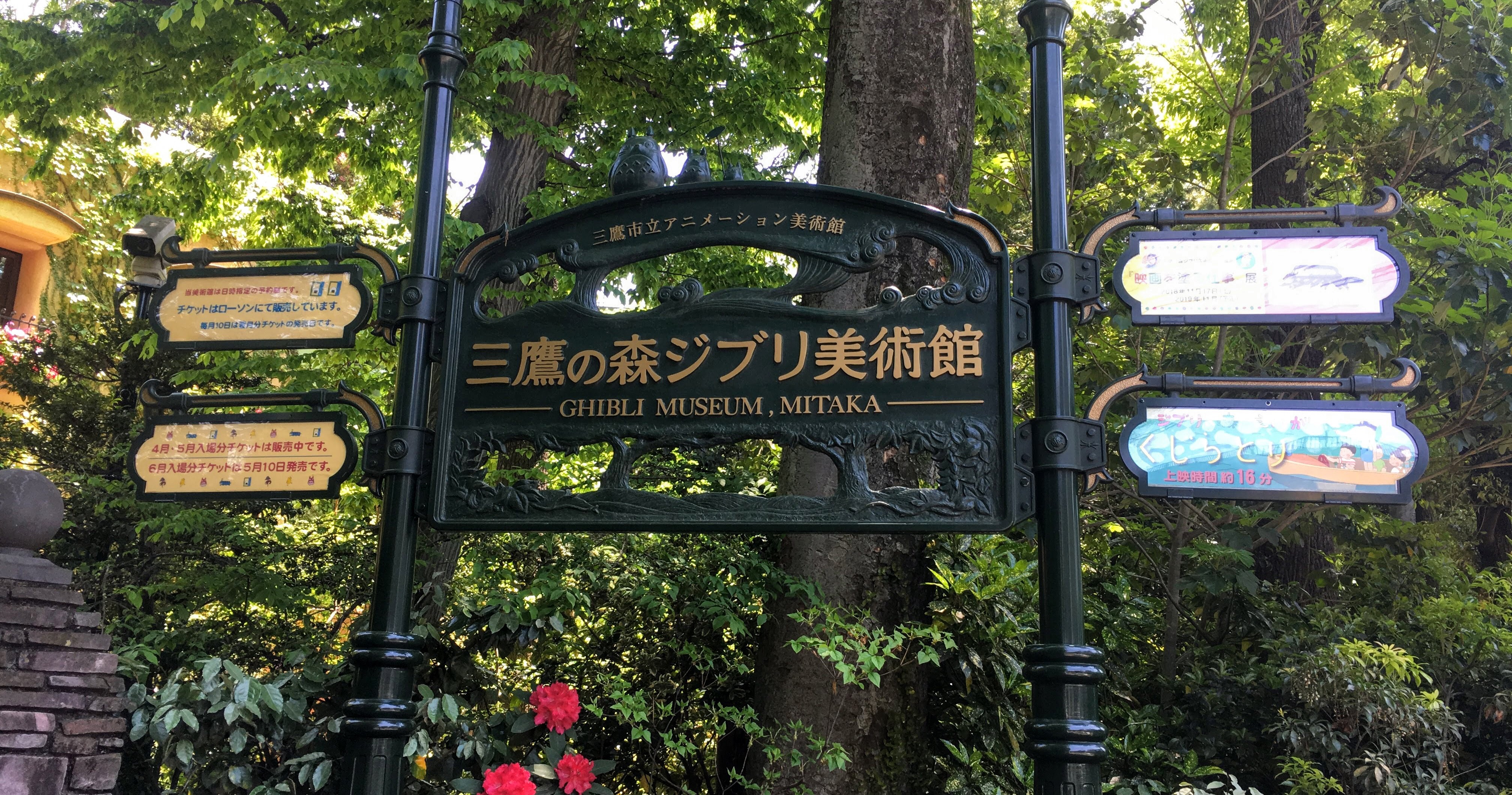
“The Ghibli Museum is a portal to the storybook world” -Museo d’Arte Ghibli
Studio Ghibli’s films have been a massive hit with audiences of all backgrounds for over three decades. A visit to the Studio Ghibli Museum gives visitors a glimpse into the animation world. No doubt everyone will appreciate the passion and painstaking detail that is put into each film.
History of Studio Ghibli
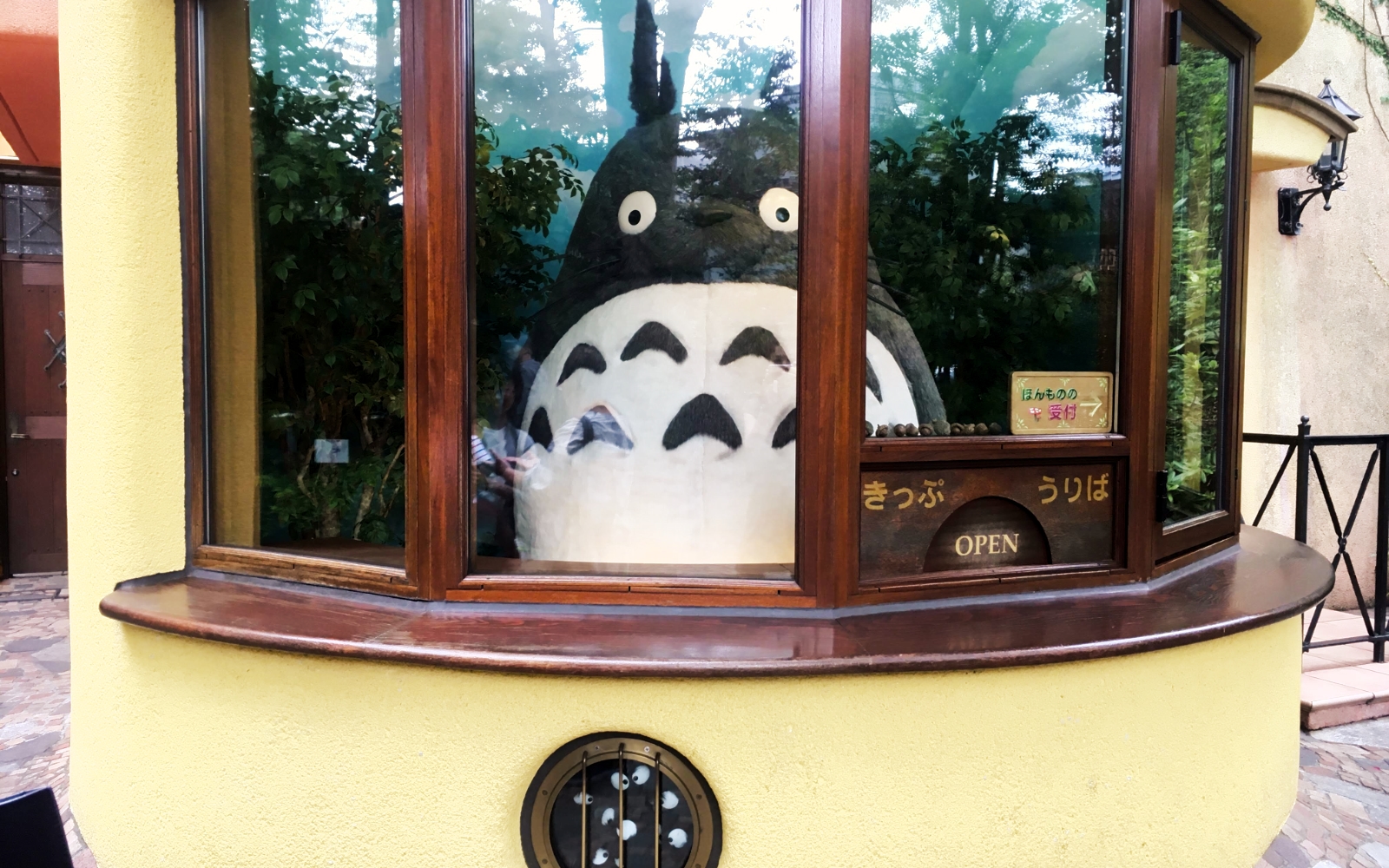
Studio Ghibli Animation Studio was founded in 1985 by Miyazaki and Isao Takahata. The studio’s films immediately captured the hearts of first a Japanese, then a worldwide audience. The first movie the animation studio released was Laputa: Castle in the Sky. In 1988 My Neighbor Totoro was released, which includes several characters that are still adored by many and considered a major part of Japanese culture today.
Miyazaki is known for featuring female leads in his movies, much like Studio Ghibli’s most renowned film, Spirited Away. A girl named Chihiro gets trapped in the spirit world and finds work at a bathhouse to try to save her parents. The movie won “Best Animated Feature” at the 75th Academy Awards, making it the first non-English animated film to win in that category.
“Many of my movies have strong female leads. Brave, self-sufficient girls that don’t think twice about fighting for what they believe with all their heart. They’ll need a friend, or a supporter, but never a savior. Any woman is just as capable of being a hero as any man.” -Hayao Miyazaki
In 2013, The Wind Rises was released. This was a movie set in Japan during World War II about an engineer realizing his dreams of building airplanes. Miyazaki announced after this release that this movie would be his last feature-length film. He then started focusing on short films for the Ghibli Museum, including Boro the Caterpillar, his first computer-animated short. In 2015, Miyazaki was given an honorary Oscar by the Academy of Motion Picture Arts and Sciences.
Fans rejoiced in 2016 when Miyazaki announced that he would expand Boro the Caterpillar into a feature-length release.
How to Buy Tickets
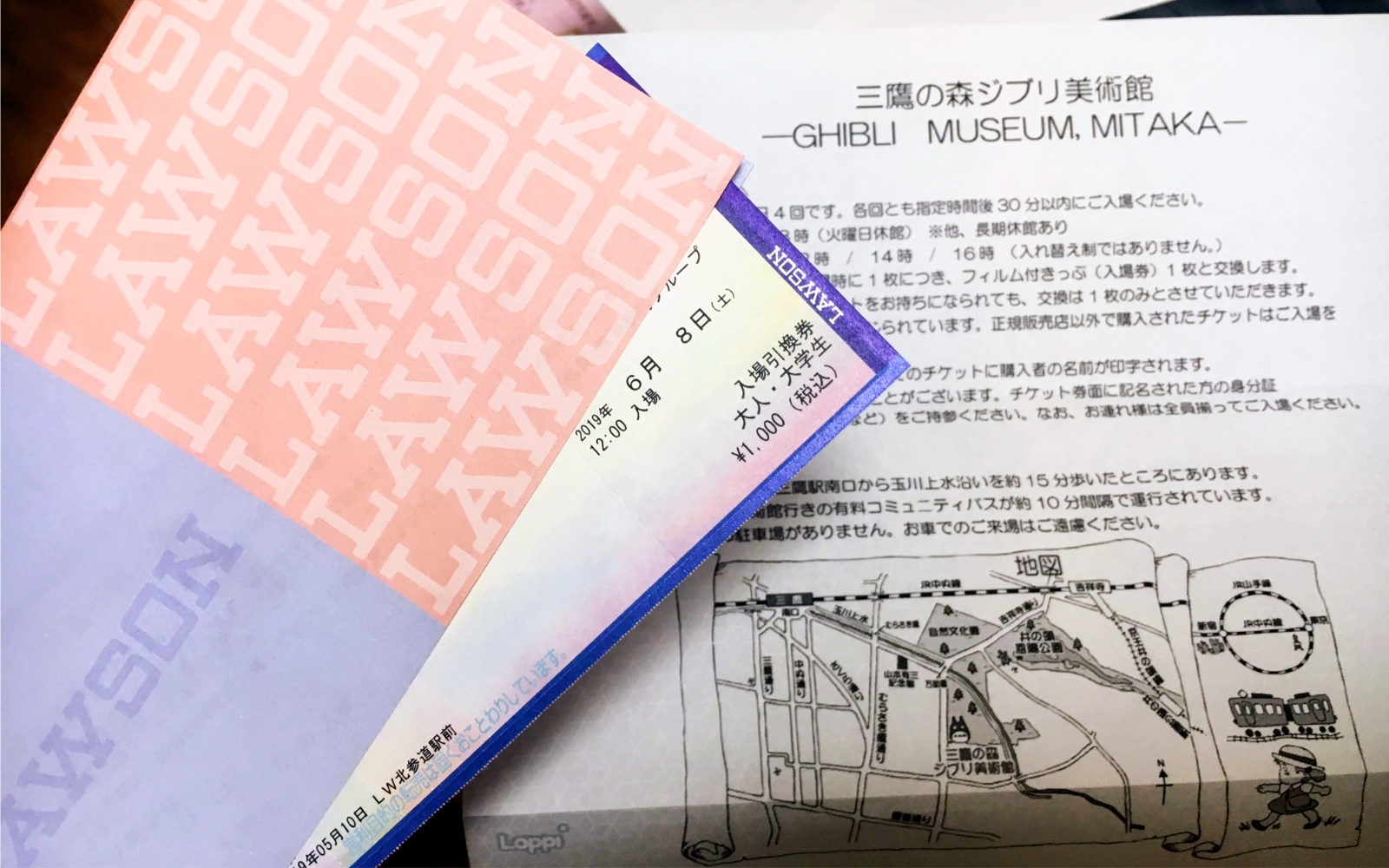
There are three ways you can purchase tickets to the Studio Ghibli Museum:
- If you’re currently in Japan, you can use a Loppi ticket machine at Lawson. Tickets go on sale at 10:00 a.m. on the 10th of each month, for the following month. If you’re looking to purchase weekend tickets, it’s best to be in front of a Loppi right at 10:00 a.m.
- If you’re based outside of Japan, you can buy tickets from JTB Group’s online website. JTB Group is a Japanese travel agency that is partnered with Studio Ghibli Museum to provide 100 tickets per entry day for visitors from abroad. Tickets go on sale on the 1st of the month for the following four months. Purchasing from some countries may require a combination purchase with other JTB Group tours and services. If this is the case (as it is for JTB Group in the US), here’s a third option:
- Buy tickets through a third-party tourist office or tour operator, online options being Voyagin or Get Your Guide. If you reserve tickets through these sites before the 10th of the month, a tour operator will secure a ticket for you from within Japan. Purchasing tickets this way comes at a premium, but you will be guaranteed entry. Through this method, you can purchase last-minute tickets if you didn’t check for tickets in advance.
Studio Ghibli Museum Exterior and Interior

This museum has “character” to the full extent of the word. The colorful exterior is inviting, playful, and covered with green grass and winding vines. The rooftop is home to the museum guardian, a Robot Giant, as seen in the film Laputa: Castle in the Sky. The rooftop also has a cube from Laputa on it, covered in cryptic script.
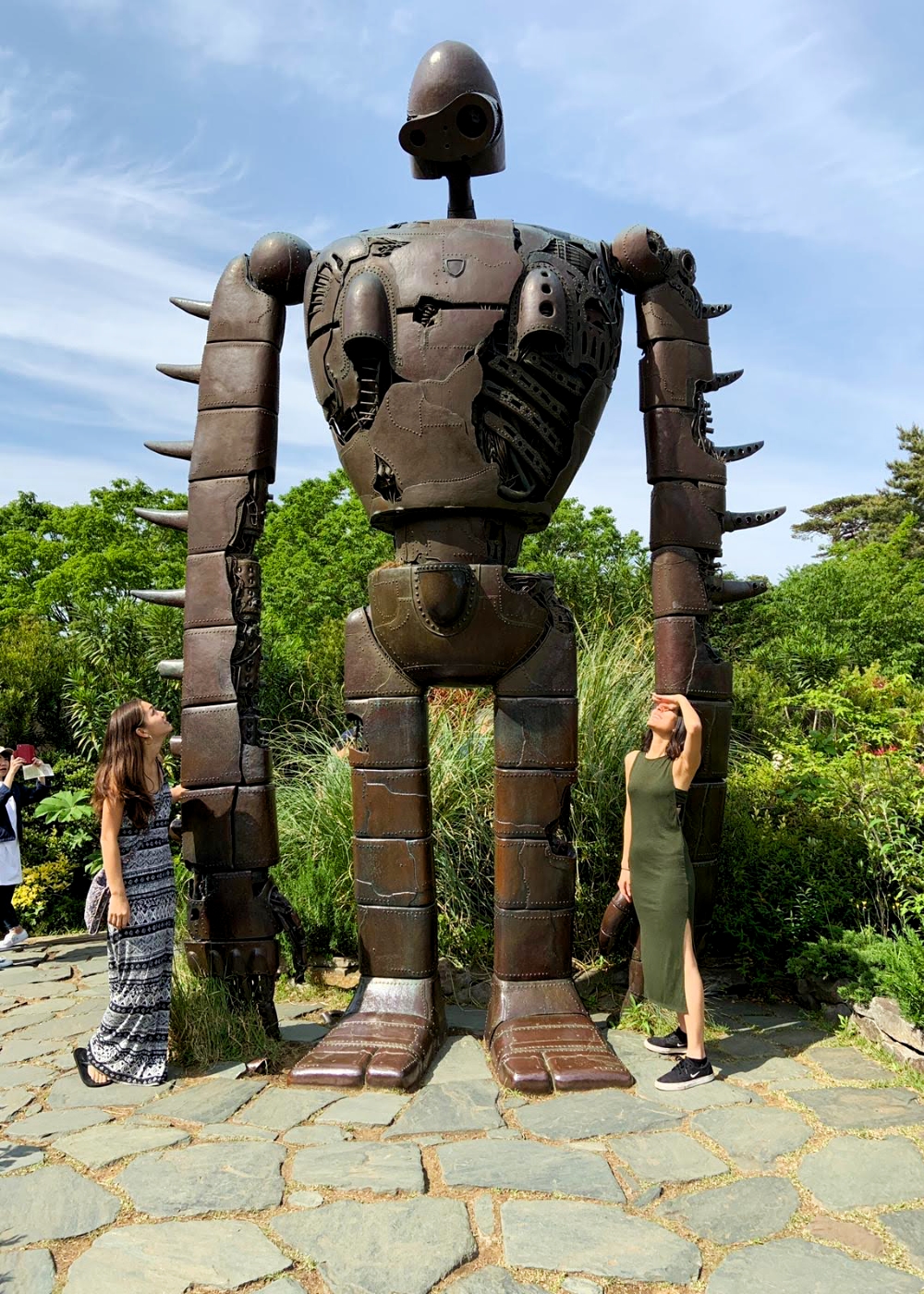
The interior of the museum is like a huge European chateau with old wooden paneling, stained-glass windows, a spiral staircase, and even a small bridge crossing over the main foyer. Miyazaki designed the building so that there’s no set path to follow, and you can explore as freely as your heart desires. Several rooms branch off the main entrance hall where you can picture how the animated films first come to life.
Straw Hat Cafe

There is a small café, Café Mugiwara Boushi (Straw Hat Café), on an outdoor patio. Here, you can take a rest from exploring the rest of the museum and purchase items off the menu like drinks, ice cream, cake, or some heartier meal options like pasta or Japanese curry. A small concession shop sits next to the Straw Hat Café, where you can get fries, hot dogs, and ice cream.
Studio Ghibli Museum Rooms
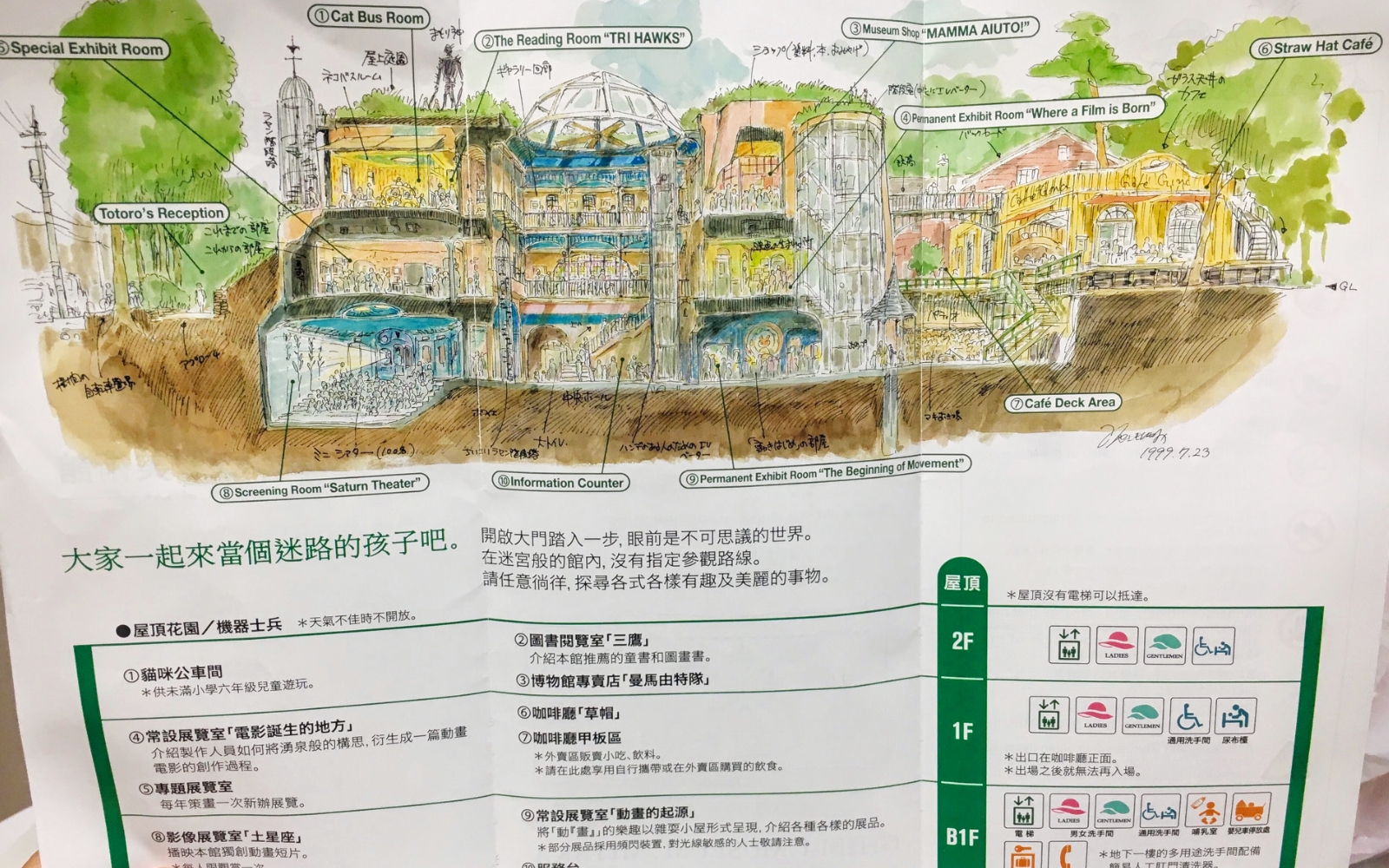
There are a handful of rooms to explore at the museum, and while you can’t take photos inside these rooms, it’s a great chance to immerse yourself in the magic of Studio Ghibli that you can’t get anywhere else in the world—away from your phones.
The Saturn Theater
View this post on Instagram
Studio Ghibli produced eight short films that can only be watched at the Saturn Theater in the Studio Ghibli Museum. Each month, the movie that is screening changes. See which movies are screening each month here—or keep it a surprise!
“Tri Hawks” Reading Room
Discover children’s books that inspired the Studio Ghibli movies, as well as other children’s books recommended by Miyazaki and the Studio Ghibli team. You can find manga versions of each Ghibli movie, as well as large picture books for the Ghibli shorts, screened at the Saturn Theater.
The Cat Bus Room
View this post on Instagram
Exclusively for children 12 and under, this room allows children to play on a large Cat Bus, a character from My Neighbor Totoro. It’s a perfect place to let little ones blow off some steam or re-live the scenes from the movie by climbing inside the Cat Bus!
A Boy’s Room—A Gift from Grandpa
This room is filled from floor to ceiling with sketches of Ghibli characters and scenery, as well as photo albums of real locations that were used as inspiration for the films. Roped off is a desk covered in paints, pencils, a sketchbook, and all sorts of toys and antiques, depicting the artist’s desk. The other rooms connected to this one show the process of creating an animation film and are filled with bookcases and knick-knacks like model airplanes and atlases.
“Mamma Aiuto!” Gift Shop
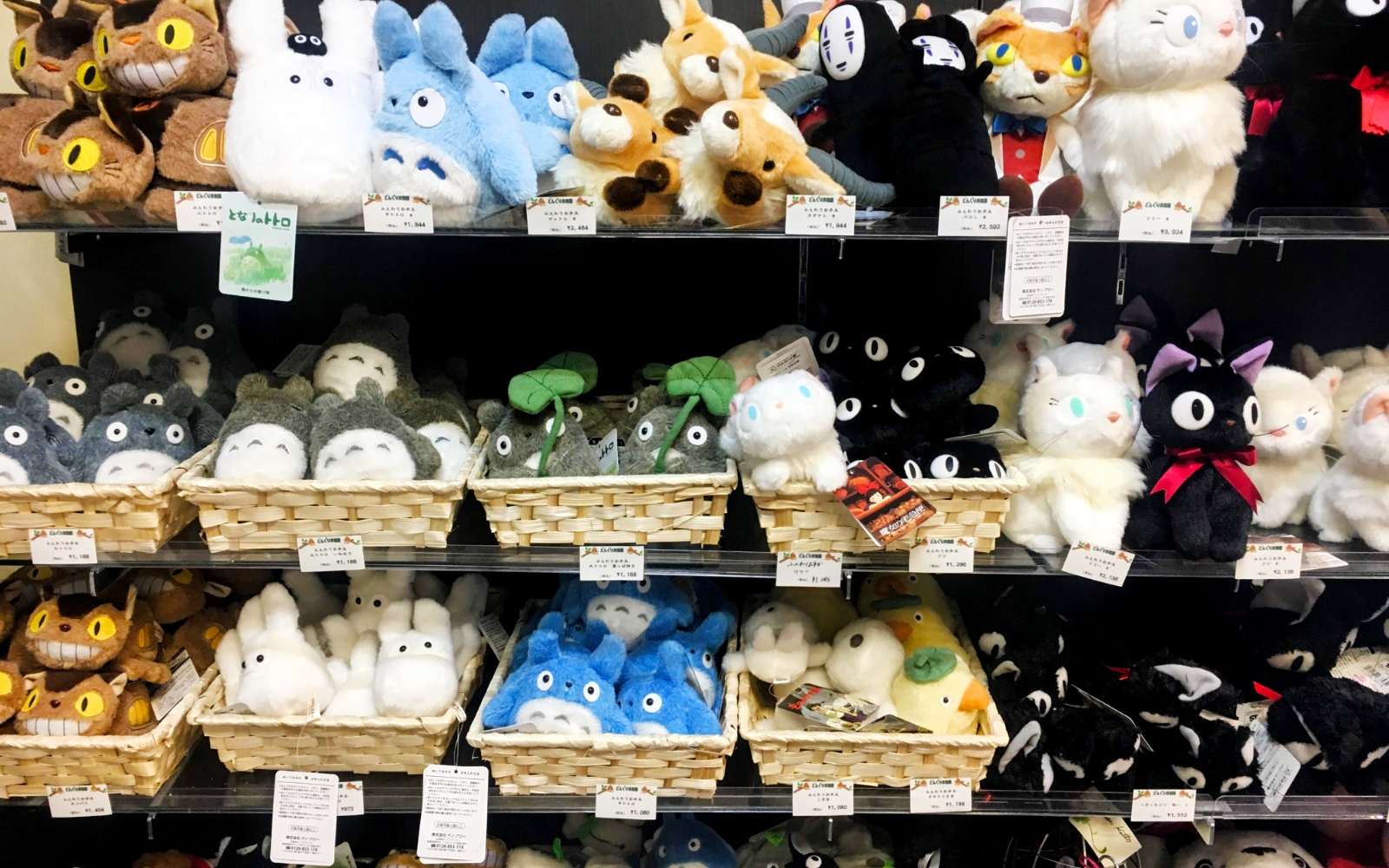
Studio Ghibli fans will be delighted by the museum gift shop, named “Mama, help me!” in Italian, from the movie Porco Rosso. Various souvenirs including jewelry, figurines, antiques, and t-shirts are available for purchase—exclusive to the Studio Ghibli Museum shop!
Studio Ghibli Special Exhibits
One room at the Studio Ghibli museum is home to rotating exhibits that stay for a year or more before being replaced. From May 2017 to November 2018, the exhibit was called Delicious! Animating Memorable Meals, which showcased film scenes of food and meals. It displayed how animators can draw food to look like the correct texture and how to convey its deliciousness to the audience.
From November 2018 until November 2019, the rotating exhibit is called Painting the Colors of Our Films, which showcases how each hand-drawn frame for the film was hand-painted using hundreds of colors. Rotating exhibits will sometimes stay longer in this room if requested by popular demand.
After Visiting the Studio Ghibli Museum

Once you’ve explored every room to its fullest, you exit the Studio Ghibli museum into Inokashira Park. This wide grassy area is filled with picnic tables and walking paths and is home to a small zoo and a lake. It’s the perfect place for a family or friends outing if you want to spend a full day in Mitaka.
The Deets
Studio Ghibli Museum
Where: 1-1-83 Simorenjaku, Mitaka, Tokyo
Open: 10 a.m.-6 p.m., Closed every Tuesday. Closed periodically for maintenance.
Cost: ¥1,000 (Adults), ¥700 (Age 13-18), ¥400 (Age 7-12), ¥100 (Age 4-6), Free for children under 4. Must buy tickets in advance.





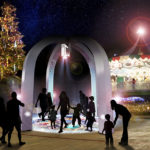






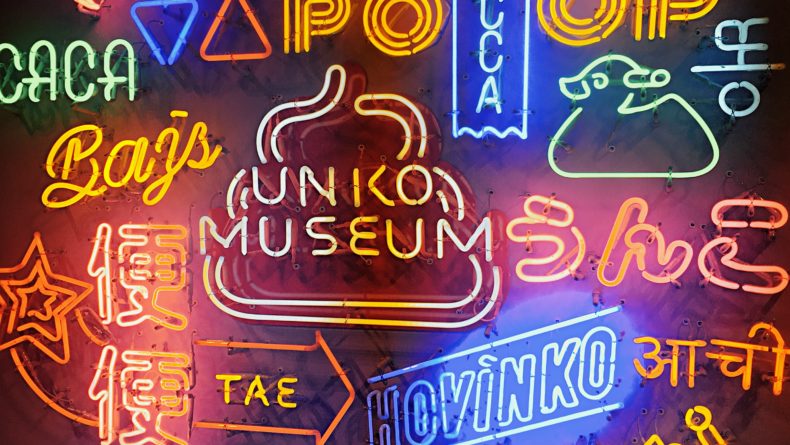
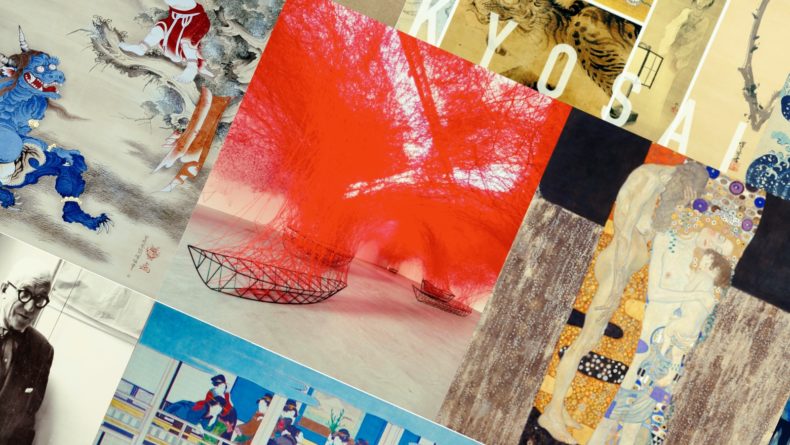
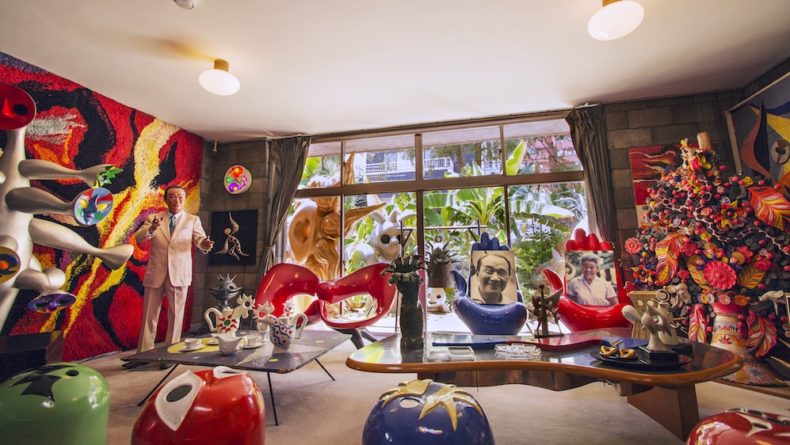
Leave a Reply